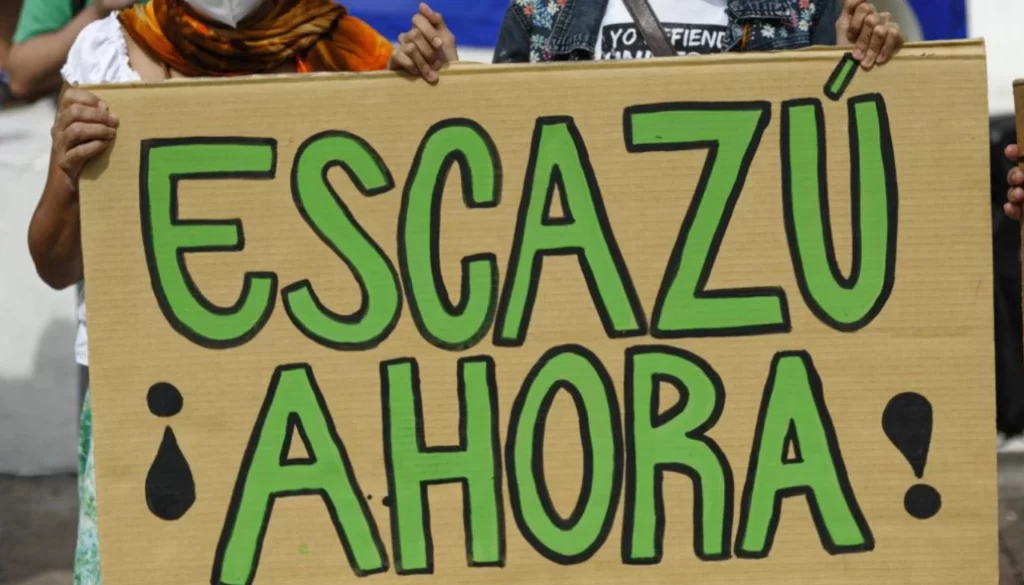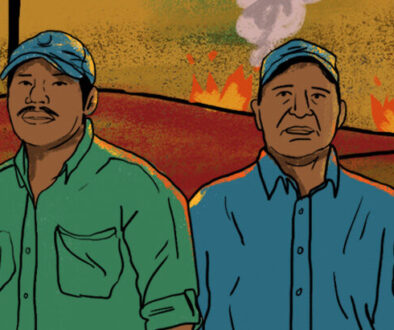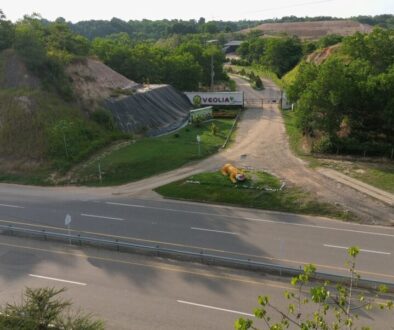The Escazu Agreement and his third COP
For the third year running, the signatories of the Escazu Agreement will be meeting in Santiago de Chile from 22 to 24 April 2024. The stakes are high: the approval of the action plan of human and environmental rights defenders.
An unprecedented agreement
The Escazu agreement is unique. It is the first international treaty in Latin America and the Caribbean to deal with the environment and the first in the world to include legal provisions on the rights of environmental defenders. The agreement was born at the 2012 United Nations Conference on Sustainable Development and is the only binding treaty adopted following the conference. It was adopted in Escazu, Costa Rica, on 4 March 2018.
For several decades, Latin America’s economic development policies have focused mainly on exploiting extractive resources (ext., petroleum products, etc.) and producing agricultural products for export (soya, sugar cane, coffee, palm oil, etc.). However, this march towards globalisation is often achieved at the expense of the people who live on these fertile lands. Many activists are fighting to protect their environment, often at the cost of their lives. In 2016, the murder of Berta Caceres, a Honduran environmental activist, had a profound effect on people’s minds and sadly helped to speed up the creation of the Escazu Agreement. She had been fighting for 22 years to defend human rights, particularly against constructing a hydroelectric dam that would have deprived hundreds of inhabitants of the community of Rio Blanco of water. In 2020, 200 environmental activists were murdered in Latin America, making it the continent with the highest number of murders of environmental activists, according to Global Witness.
The Escazu agreement is precisely in line with this logic of legal protection of populations, mainly «original peoples» who are the first victims of the exploitation of resources. It is inspired by principle 10 of the 1992 Rio Declaration, which enshrines citizen participation as the cornerstone of environmental protection (as did the 1998 Aarhus Convention, which promoted this principle in Europe).
The consequences of the Covid crisis have had a particular resonance for environmental activists in South America and the Caribbean. Physical and moral violence against activists has been exacerbated, with governments systematically using the pandemic to criminalise their actions. The methodical banning of all environmental demonstrations in certain countries, on the pretext of «spreading information inciting violence», represents a danger to freedom of expression, but more particularly to the defence of human rights and the environment. However, the COVID-19 crisis could also represent a turning point towards a more inclusive and environmentally friendly recovery.
A third COP
The first COP, also in Santiago, in April 2022, established the possibility for the Committee to receive «complaints», known as communications, not only from States but also from individuals, which is a rare occurrence in the environmental defence world. This priority of strengthening cooperation and multilateralism over the long term was also reflected in the desire to broadcast live COP 2, which took place in Buenos Aires in April 2021. The dates of these meetings were not chosen randomly, as 22 April symbolises World Day for the Planet’s Defenders. Among the various points discussed in Buenos Aires was the appointment of the seven Compliance and Enforcement Support Committee members, created by Article 18 of the Escazu Treaty.
2024 COP 3 will again be held in the Chilean capital to finalise the Action Plan to protect human rights defenders. The detailed programme for this meeting will soon be available on the Escazu Agreement website (https://acuerdodeescazu.cepal.org).
A promising future
The arrival of the new conservative president, Rodrigo Chaves Robles, in power in Costa Rica has upset the environmental plans of the Escuazu agreement. Chaves Robles is refusing to ratify the agreement. At a press conference, the new president announced that he did not believe «that it (the Escazu agreement) would benefit the country, as everything included in the Escazu agreement is already provided for in our legislation», going on to say that «the private sector must be reassured that the Escazu agreement is not on the government’s agenda». These announcements come when many organisations oppose the Escazu agreements, citing the loss of national sovereignty as an argument often used by conservative parties. Yet article 3 of the Escazu agreement stipulates that all signatory countries retain absolute sovereignty over their natural resources. The Paris Agreement 2015 also raised the same concerns among certain political classes.
However, the turn to the left in some Latin American countries is promising. Colombia’s new president, G. Petro, and Brazilian President, Lula da Silva, are committed to implementing the treaty. During a conversation organised by Asuntos del Sur on 20 February, we had the opportunity to discuss the Escazu agreements on environmental issues and the defence of human rights with Brazilian specialists. As Brazil is the country with the most social-environmental conflicts in Latin America, this agreement could be the promise of a fairer future that respects our planet.
By Alicia Charon, Intern of KALLIED.





